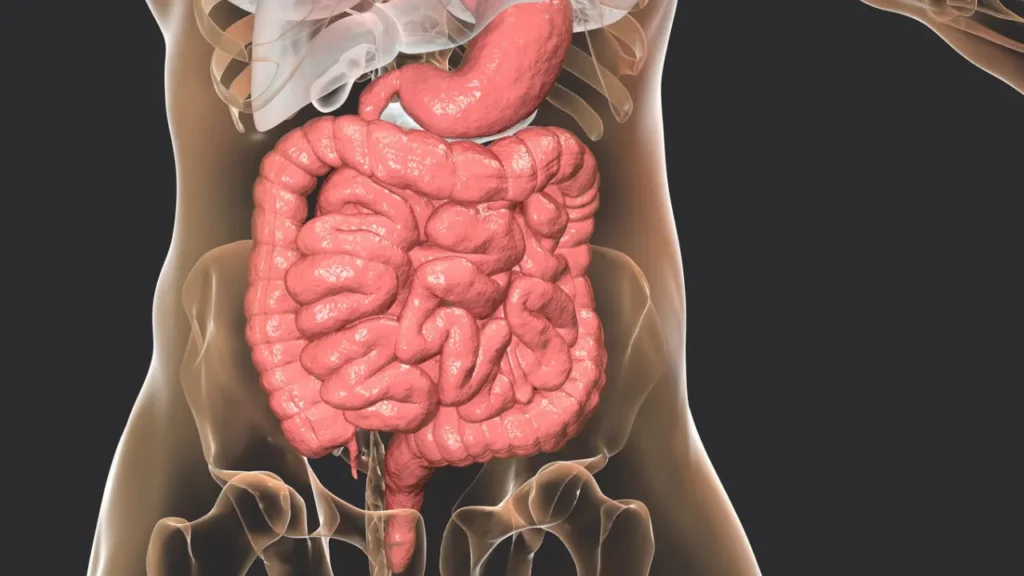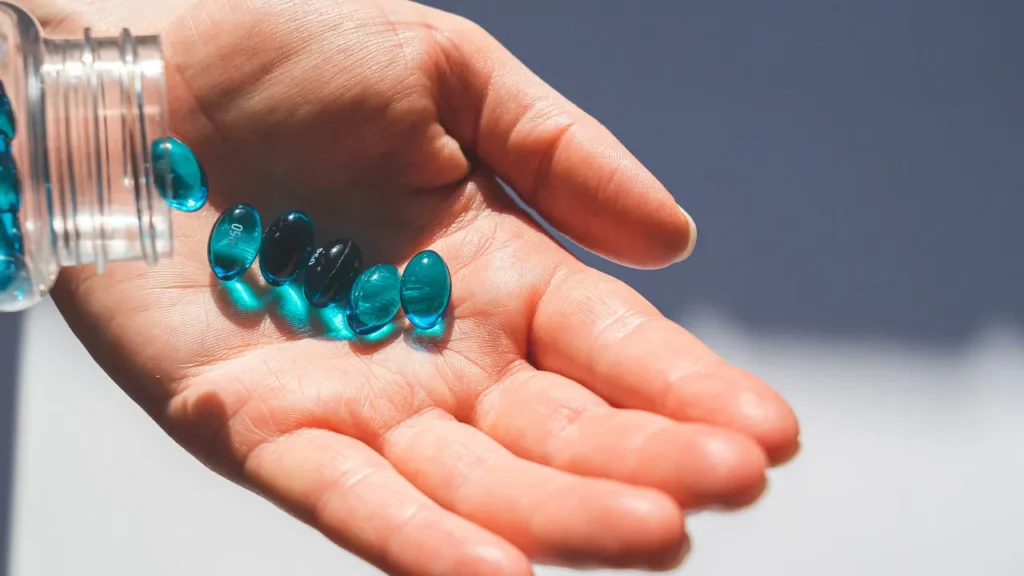Bacillus coagulans is a gram-positive, spore-forming, lactic acid-producing bacteria that has received a lot of attention recently because of its potential as a probiotic. Live bacteria known as probiotics can help the host’s health when given in sufficient doses. Bacillus coagulans has emerged as a distinct and attractive contender due to its capacity to endure challenging environmental conditions and preserve viability throughout processing and storage, even though several strains of bacteria have been found and used as probiotics. In order to help readers utilize this dietary supplement responsibly, this article digs into the characteristics of Bacillus coagulans, its health advantages, the best dosage, side effects, potential drug interactions, and other pertinent information.
You May Also Like:
Keep Your Brain Young With the 5 Most Powerful Nootropic Supplements
Finding the Best Supplements for Brain Fog After COVID: 5 Top Brands Reviewed
BACILLUS COAGULANS: Benefits, Dosage, Side Effects, Drug Interactions, And Other Important Information is an original (NootropicsPlanet) article.
The Nature of Bacillus coagulans
Due to its physical resemblance to lactic acid-producing bacteria, Bacillus coagulans was initially categorized as Lactobacillus sporogenes when it was first discovered in 1915 from a damaged can of milk. However, later analysis of the genome and studies indicated that it belonged to the Bacillus genus. The ability of Bacillus coagulans to produce endospores, which are robust, inactive structures that allow the bacteria to tolerate unfavorable conditions, including high temperatures, acidity, and desiccation, is its most important characteristic. Compared to other probiotics like Lactobacillus and Bifidobacterium species, Bacillus coagulans have various advantages because of this special trait.
First, Bacillus coagulans can endure the gastrointestinal tract’s challenging circumstances, especially the stomach’s acidic environment, because it is a spore-forming organism. This robustness ensures that plenty of living bacteria make it to the intestines, where they can exert their beneficial effects on health. Second, since they are heat-resistant, Bacillus coagulans endospores can be incorporated into various food products without refrigeration. Finally, Bacillus coagulans exhibit outstanding shelf stability, making it a more desirable choice for manufacturers and customers.
Health Benefits of Bacillus coagulans
The ability of Bacillus coagulans to make lactic acid and regulate the gut microbiota, the intricate community of microbes living inside the human gastrointestinal system, is chiefly responsible for its health advantages. The following are a few of the main health advantages of Bacillus coagulans:
- Digestive Health: Bacillus coagulans have been shown to relieve irritable bowel syndrome (IBS) symptoms such as diarrhea, bloating, and abdominal pain. Healthy gut microbiota is thought to be promoted by the lactic acid the bacterium produces, which may make conditions unfavorable for the growth of harmful microbes. Bacillus coagulans may also enhance gut barrier performance and modify the immunological response, all of which contribute to better gastrointestinal health.
- Immune System Support: Research has shown that taking Bacillus coagulans supplements can improve the immune system’s response to viral diseases like the flu and the common cold. Immune system proteins known as cytokines and antibodies are key in managing the body’s defense against infections. It is thought that Bacillus coagulans may increase the production of these immune system proteins.
- Reduction of Inflammation: Bacillus coagulans has been shown to lessen inflammation in a number of clinical disorders, including inflammatory bowel disease and rheumatoid arthritis. The alteration of the gut microbiota and the resultant impact on immune function may cause this anti-inflammatory effect.
- Improved Nutrient Absorption: According to research, Bacillus coagulans infection may enhance the absorption of vital nutrients, including vitamins and minerals, by fostering a healthy gut environment. This improved nutrient absorption might benefit people with poor gut health or those on restrictive diets.
- Controlling Cholesterol: According to preliminary studies, Bacillus coagulans may help reduce total cholesterol and low-density lipoprotein (LDL) cholesterol levels, which are linked to an elevated risk of cardiovascular disease. Although the exact mechanism of action is still unknown, it is believed to include altering the gut flora and bile acid metabolism.

Chemistry of Bacillus coagulans
It is crucial to describe the main chemical substances and metabolic processes the bacterium uses in its interactions with the host and other bacteria in the gut environment to comprehend the chemistry of Bacillus coagulans.
- Lactic Acid: Bacillus coagulans, a lactic acid-generating bacteria, may metabolize carbohydrates through fermentation, producing lactic acid (C3H6O3) in the process. When present in sufficient amounts, the organic chemical lactic acid can create an acidic environment that prevents the growth of pathogenic microbes.
- Short-Chain Fatty Acids (SCFAs): Bacillus coagulans can also create short-chain fatty acids like acetate (C2H4O2), propionate (C3H6O2), and butyrate (C4H8O2) in addition to lactic acid. These SCFAs are critical for colonocytes, the cells that line the colon, and are essential for preserving the integrity of the gut barrier. SCFAs have also been demonstrated to have anti-inflammatory properties and to control immune system reactions.
- Bacteriocins: Bacillus coagulans can synthesize tiny, ribosomally-produced proteins known as bacteriocins, which are antimicrobial peptides that can prevent the growth of other bacteria, including pathogens. Bacteriocins often target particular bacterial species or groups due to their narrow spectrum of activity. This selective antibacterial action can establish and maintain a balanced gut flora.
- Production of numerous enzymes, including proteases, lipases, and amylases by Bacillus coagulans, which help break down proteins, lipids, and carbohydrates, respectively. The creation of these enzymes can improve nutrition absorption in the gastrointestinal tract and aid in nutrient digestion.
In conclusion, Bacillus coagulans‘ chemistry involves the creation of several metabolites and enzymes essential to the organism’s probiotic effects. Key chemical components that support the bacterium’s capacity to modify the gut microbiota, preserve the integrity of the gut barrier, and control host’s immune system include lactic acid, SCFAs, bacteriocins, and enzymes.
Physiological Mechanisms of Action
The interaction between the host’s immune system, the gut microbiota, and Bacillus coagulans lies at the heart of the physiological processes of action that underlie the health advantages of this bacterium. Here are a few crucial mechanisms:
- Production of Lactic Acid: Lactic acid is a byproduct of the fermentation of carbohydrates in the stomach by Bacillus coagulans. A balanced and healthy gut microbiota is encouraged by lactic acid because it lowers the pH of the gut environment, which can prevent the growth of pathogenic microbes.
- Modulation of Gut Microbiota: Bacillus coagulans can affect the gut microbiota’s makeup directly and indirectly. Pathogens are competitively excluded, antibacterial compounds are produced, and the aforementioned lactic acid generation falls under direct impact. Bacillus coagulans produces short-chain fatty acids (SCFAs) and other metabolites, which may indirectly promote the growth of beneficial bacteria like Bifidobacterium and Lactobacillus species.
- Gut Barrier Function: By encouraging the creation of tight junction proteins, which are crucial for blocking the passage of hazardous chemicals and pathogens from the gut into the bloodstream, Bacillus coagulans may help preserve the integrity of the gut barrier and lessen immune system activation and inflammation brought on by a “leaky gut.”
- Immunomodulation: Through several methods, Bacillus coagulans can alter the host’s immunological response. For instance, it may promote the synthesis of immunoglobulin A (IgA), a critical component of mucosal immunity. Furthermore, the generation of cytokines, which are proteins that control immune system responses, can be influenced by Bacillus coagulans. It has been demonstrated to lower the levels of pro-inflammatory cytokines like tumor necrosis factor-alpha (TNF-) and raise the levels of anti-inflammatory cytokines like interleukin-10 (IL-10).

Optimal Dosage of Bacillus coagulans
The best Bacillus coagulans dosage depends on the strain, the product composition, and the desired health benefit. Clinical investigations have generally utilized daily dosages of 1 billion to 10 billion colony-forming units (CFUs) and found these helpful for treating various medical disorders. Before beginning any supplementing routine, speaking with a medical practitioner is crucial because everyone’s demands and tolerance levels are different.
Side Effects of Bacillus coagulans
Since few adverse effects have been reported, Bacillus coagulans are often considered safe for eating. Mild gastrointestinal symptoms like gas, bloating, and abdominal discomfort are the most normal adverse effects and usually go away after a few days of use. Probiotics, particularly Bacillus coagulans, may increase the risk of infection in those with impaired immune systems, such as those with HIV/AIDS or those receiving chemotherapy. These people should use caution when utilizing probiotics. Additionally, before beginning supplementation, anyone with a history of allergies or sensitivity to Bacillus species should speak with their healthcare physician.
Potential Substance Interactions with Bacillus coagulans
Bacillus coagulans, a probiotic, may interact with some drugs and chemicals, while there is little information on specific interactions. The following are a few potential interactions to be aware of:
- The gut microbiota equilibrium can be upset by antibiotics, which can lessen the efficiency of probiotics such as Bacillus coagulans. Probiotics should be taken at least two hours before or after antibiotics to reduce this interaction.
- Drugs that modify the immune system: Drugs that modulate the immune system, such as corticosteroids, immunosuppressants, or biologic drugs, may interact with Bacillus coagulans. If you use these medications, consult a medical practitioner before beginning Bacillus coagulans supplements.

Best Responsible Uses of Bacillus coagulans
Follow these recommendations to ensure the optimal, responsible use of Bacillus coagulans:
- Before beginning a supplement regimen, speak with a healthcare provider, especially if you have a history of illness or are already taking medication.
- Pick a reliable product that has passed independent efficacy, safety, and quality testing.
- Comply with the manufacturer’s dose recommendations and make necessary modifications based on each person’s tolerance and response.
- Watch for any adverse effects, and stop using the medication if they are severe or persistent.
BACILLUS COAGULANS:
Conclusion
Bacillus coagulans shows promise as a probiotic supplement for promoting digestive health, supporting immune function, and exerting antimicrobial effects. However, further research is needed to understand its mechanisms of action fully and optimal dosage for specific health conditions. The efficacy of Bacillus coagulans may vary based on the strain used and the formulation of the supplement. Individuals considering Bacillus coagulans supplementation should consult healthcare professionals to determine its suitability for their health needs.

References:
- Gut microbiota: A player in aging and a target for anti-aging intervention. Retrieved from: https://www.ncbi.nlm.nih.gov/pmc/articles/PMC5408748/
- Probiotics, gut microbiota, and their influence on host health and disease. Retrieved from: https://www.cell.com/molecular-therapy-family/nucleic-acids/fulltext/S2162-2531(17)30155-9
Important Note: The information contained in this article is for general informational purposes only, and should not be construed as health or medical advice, nor is it intended to diagnose, prevent, treat, or cure any disease or health condition. Before embarking on any diet, fitness regimen, or program of nutritional supplementation, it is advisable to consult your healthcare professional in order to determine its safety and probable efficacy in terms of your individual state of health.
Regarding Nutritional Supplements Or Other Non-Prescription Health Products: If any nutritional supplements or other non-prescription health products are mentioned in the foregoing article, any claims or statements made about them have not been evaluated by the U.S. Food and Drug Administration, and such nutritional supplements or other health products are not intended to diagnose, treat, cure, or prevent any disease.


